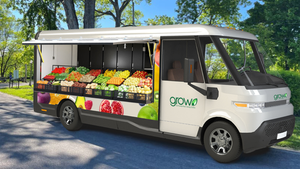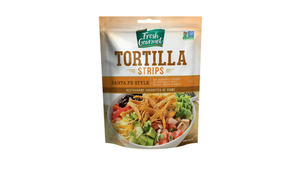Survey Assesses Independents
ARLINGTON, Va. Given the tough economic outlook, independents need to keep their eyes peeled for potential acquisitions of competitors that could help them grow their businesses, according to David Schroeder, a principal in Food Partners, Washington. His recommendation was included as part of the 2010 Independent Grocers Survey, a joint study by the National Grocers Association here and FMS Solutions,
August 23, 2010
ELLIOT ZWIEBACH
ARLINGTON, Va. — Given the tough economic outlook, independents need to keep their eyes peeled for potential acquisitions of competitors that could help them grow their businesses, according to David Schroeder, a principal in Food Partners, Washington.
His recommendation was included as part of the 2010 Independent Grocers Survey, a joint study by the National Grocers Association here and FMS Solutions, Baltimore.
“Looking forward, the economic downturn will likely accelerate a wave of divestitures of underperforming stores and potentially provide opportunities for a number of retailers to grow their businesses,” Schroeder said. “Our recommendation is that retailers prepare for such events … [that] will be driven by creditors and come to fruition on an extremely short timeline.”
The survey compared results among independents in 2009 with those of 2008. Among its findings:
Average net profits before taxes fell to 1.68% in 2009, compared with 1.88% among 2008 respondents — “a solid showing, considering the economic environment,” Robert Graybill, FMS president, pointed out. That compared with an average pre-tax profit of 1.31% for the top publicly traded chains, while the 25 independents with the highest volume saw net profits of 4.1%.
Top-line sales increased 3.94% among respondents, down from an increase of 4.31% a year ago. However, results in 2008 were heavily influenced by CPI Food at Home inflation, the study pointed out.
Gross margins fell 66 basis points to 26.94%, compared with 26.28% in 2008, “as consumers concerned about job security, loss of retirement fund value and equity in their homes began a search for value,” the survey noted.
Inventory turns remained relatively unchanged at 18.03 times a year, compared with 17.99 turns in 2008.
With capital difficult to obtain, 50% of respondents said they had already reduced capital spending from 2008 to 2009, while another 50% said new tax incentives would motivate them to increase capital spending.
The top political concern of respondents was health care reform, followed by energy costs.
About the Author
You May Also Like






